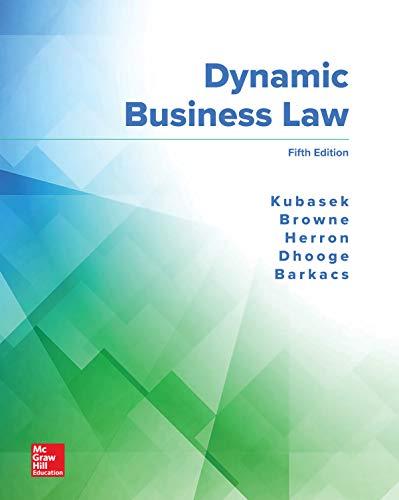In December 2010, the Equal Employment Opportunity Commission filed a nationwide hiring discrimination lawsuit against the Kaplan
Question:
In December 2010, the Equal Employment Opportunity Commission filed a nationwide hiring discrimination lawsuit against the Kaplan Higher Education Corporation. Kaplan was requiring access to applicants’ credit reports and credit histories and took such information into consideration when hiring. Not only did the EEOC believe that such a requirement was discriminating against black applicants, but it also felt that, during a time of financial woes for most Americans, people with damaged credit histories would have a hard time getting back into the workforce. Apparently, research showed that the reliance on credit histories significantly hurt the hiring of black applicants as opposed to white applicants. The EEOC noted that the credit histories were not necessarily connected with the performance the applicant would show at the particular job being applied for. Surveys show that credit histories are required by almost half of all employers. However, states including Washington, Oregon, and Illinois have severely limited or completely banned the reliance of employers on credit histories. Because of the recession, Congress has considered imposing such restrictions or even a ban. How do you think the court ruled in this case? Do you think it is fair not only to black applicants but to all applicants that their employer bases a hiring decision on credit history? Do you think other companies will change their use of credit histories on the basis of the outcome of this case?
Step by Step Answer:

Dynamic Business Law
ISBN: 9781260247893
5th Edition
Authors: Nancy Kubasek, M. Neil Browne, Daniel Herron, Lucien Dhooge, Linda Barkacs





